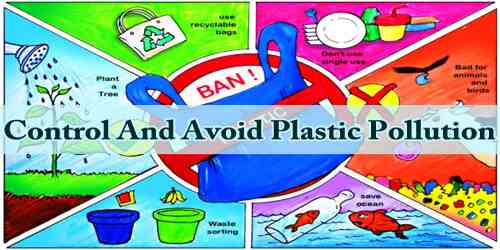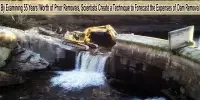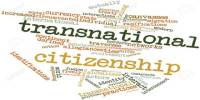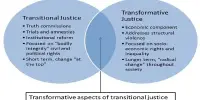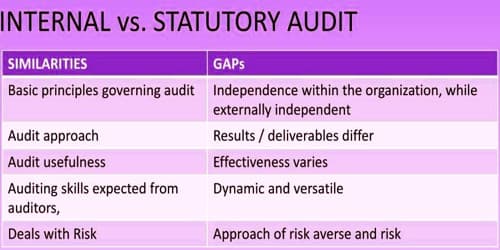The truth that the only way of addressing this issue is for people and companies in the world to commit and adopt pollution-reduction policies at all rates. Plastic bags and bottles, like all forms of plastic, create significant environmental and economic burden. They consume growing amount of energy and other natural resources, degrading the environment in a number of ways.
In addition to using up fossil fuels and other resources, plastic products create litter, hurt marine life, and threaten the basis of life on earth. The oceans are gradually turning into a plastic soup. It is estimated that 1230 g of plastic is floating around per square kilometer, not to mention the ropes, fishing nets, crates, and bottles. But (micro) plastics also end up in the soil, for example through agricultural plastic that is ploughed into the soil.
Much of the plastic waste occurs in the form of microplastics: pieces of plastic measuring between 5 micrometers and 5 millimeters. Our water purification plants have difficulty filtering out such particles. They end up in the surface water and ultimately in the oceans, where they are picked up by all kinds of marine animals, thereby entering the food chain. Awareness is growing and various governments are planning measures to reduce the volume of plastic waste.
Types of Plastic –
Plastics consist of a variety of synthetic organic polymers and additives, giving each plastic product its unique properties. Plastic is generally split into two categories: micro- and macro-plastics. Microplastics (e.g., pellets, granules) are smaller than 5 mm, found throughout the water column, and compose 95% of the plastics in the ocean. Not readily seen, they receive less attention than macroplastics, which are visible pieces of debris, larger than 5 mm, and usually found on surface water or coastal beaches.
It is estimated that 1.1 to 8.8 million tonnes of plastic waste enters the ocean from coastal communities each year. Living organisms, particularly marine animals, can be harmed either by mechanical effects, such as entanglement in plastic objects, problems related to ingestion of plastic waste, or through exposure to chemicals within plastics that interfere with their physiology. Effects on humans include disruption of various hormonal mechanisms.
Nevertheless, plastic remains a useful material, but it is crucial that plastic waste is properly recycled and does not to end up in the environment. Not only governments and companies, but also users play an essential role in this respect.
Solving the Problem –
Given the global scale of plastic pollution, the cost of removing plastics from the environment would be prohibitive. Most solutions to the problem of plastic pollution, therefore, focus on preventing improper disposal or even on limiting the use of certain plastic items in the first place. Fines for littering have proved difficult to enforce, but various fees or outright bans on foamed food containers and plastic shopping bags are now common, as are deposits redeemed by taking beverage bottles to recycling centres. So-called extended producer responsibility, or EPR, schemes make the manufacturers of some items responsible for creating an infrastructure to take back and recycle the products that they produce. Awareness of the serious consequences of plastic pollution is increasing, and new solutions, including the increasing use of biodegradable plastics and a “zero waste” philosophy, are being embraced by governments and the public.
Below are the best Plastic Pollution Solution to Control and Avoid it –
- Shop Friendly – Plastic bags are now an everyday luxury, but they can be effectively replaced with plastic bags, some of which are structured elegantly, in addition, to be lightweight. Just talk on how many items we usually take out in a supermarket, and subtract that at the number of times we buy in a supermarket. It’s a lot of expensive material! Take a bag and only use plastic bags as far as we can if we have got them.
- Avoid the use of plastic disposable material – Forks, knives, spoons, stirrers, and cotton buds shouldn’t be made of plastic. Rather use a reusable drinking bottle, for example, made of glass. Avoid the use of disposable cups. Even paper cups are usually covered with a thin layer of plastic. Prefer bringing our own cup. We better shave with a reusable razor and replaceable razor blades. Don’t use any plastic drinking straws. Use a glass at the bar or restaurant and bring your own drinking straw made of glass, steel or bamboo.
- Stay Rid from Bottled Water – People are supposed to drink plenty of water every day, and giant water bottles are becoming a way to stay hydrated all day. Furthermore, some of these are only approved for individual use, which ensures that any time anyone finishes a container, it falls into the garbage. Several businesses are now offering recycled bottles of water as a replacement, reducing plastic pollution and access to leaky bottles.
- Avoid plastic packaging – Instead of buying pre-packaged slices of cheese, we can also have the desired number of slices cut. Today, there are already shops offering products such as nuts, cereals, pasta, and beans without packaging. Just bring our reusable bags or jars. Where possible, prefer cardboard or tetra packs to plastic for our fruit juices, washing fluids, detergents.
- Avoid plastic microbeads in personal care products – The industry is making efforts to replace the plastic microbeads, but we can already search for cosmetics, shower gels, and toothpaste without such microbeads.
- Avoid synthetic clothing and/or buy a filter for our washing machine – Synthetic clothing such as fleece sweaters releases small plastic fibers into the environment when washed. More than a third of all plastic pollution in the oceans would come from the laundry. So it is better to avoid synthetic clothing. We can also install a filter in our washing machine or put our synthetic clothes in a special laundry bag. Less plastic fibers are also released in case of shorter and cooler washing (20°C-30°C).
- Forget about to-go containers – We would be shocked how often plastic is used in the manufacturing and storage of food containers. Thought the cafe’s drink cup is documented and typically covered with acrylic for padding (for either a cup of coffee certain cardboard to see what’s going on). Plastic food dishes, lids, and cookware are most easily replaced with recycled products, which could significantly reduce only one meal waste.
In the street never throw plastic or other litter out of your car and do not drop it on the pavement or in the gutter. Practice and promote paper disposal of plastics in your home and at the beach. Always remember that litter generates litter. Never dispose off plastics in the sewage system. At the beach dispose off plastics and other litter in the bins provided. If these facilities are inadequate, contact the local authority responsible for this and lodge a complaint. Take our litter back home with us if there are no receptacles on the beach. Pick up any plastic litter we may see on the beach or in rock pools in the vicinity in which we are sitting or walking. Encourage young children to do likewise.
Set an example for others and encourage them to help. Plastics are not themselves a problem. They are useful and popular materials which can be produced with relatively little damage to the environment. The problem is the excessive use of plastics in one-off applications together with careless disposal.
Information Sources:
